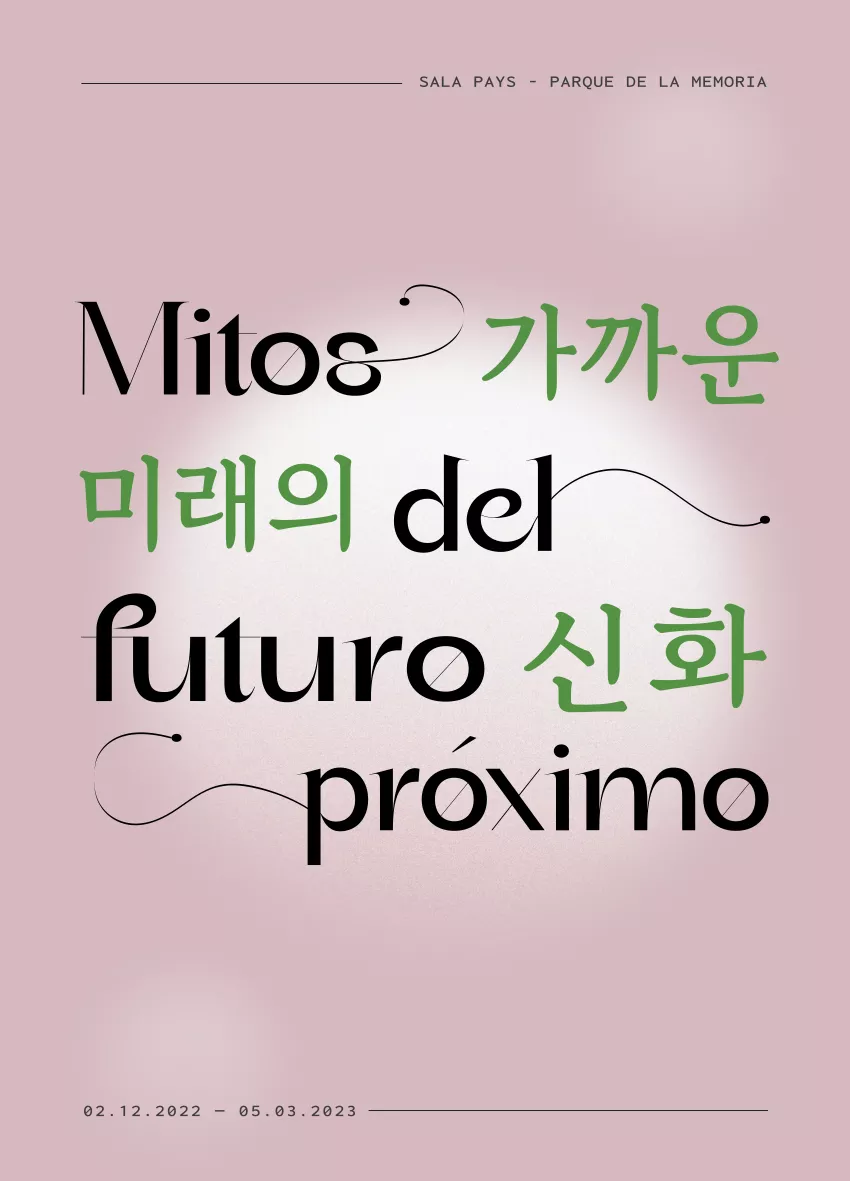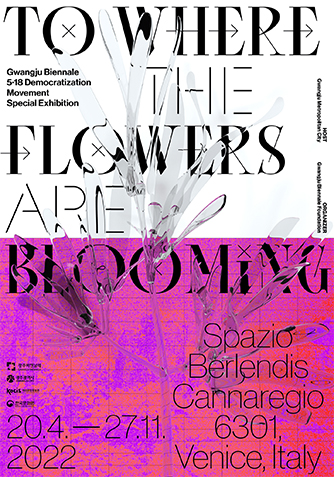5.18 Special Exhibition
Exhibition
5.18 Democratization Movement Special Exhibition in Buenos Aires
Myths of the Near Future
- Date
- 2022. 12. 2. ~ 2023. 3. 5.
- Venue
- Parque de la Memoria SALA PAyS(Presenta, Ahora y para Siempre)
- Curators
- Javier Villa, Sofía Dourron
A message of democracy, human rights, and peace for human communities
For more than forty years, every Thursday, the Madres de Plaza de Mayo have walked in circles around the Pirámide de Mayo, claiming their missing sons and daughters, disappeared by the last civic-military dictatorship in Argentina (1976-1983). With their circling, each week the Madres create a new time that holds history and also holds future: sustaining their position, they move forward in the construction of a new paradigm of human rights and politics in Argentina. They have created a clock that is a conversation of times, that recreates itself week after week, and that is already part of our near future. In May 1980, while the Madres were already walking around the Pirámide, in Gwangju, the citizens rallied in circles around the fountain at the Provincial Hall Square, holding arms to sustain their position, to resist martial law and the army’s attack on the city. During five days they took over the city government and orderly gathered around the fountain as the newly formed Citizen’s Settlement Committee, an expansive circle of waves, like a stone thrown into a fountain of time. A wave consists in the propagation of a disturbance of a property of space, which implies mobilizing energy without the movement of matter. Instead of compressing time, the wave expands it. The furthest ripple -the biggest one and the first one to appear- is constantly moving forward, thus time can be understood as a never-ending circular projection. These circular stories of resistance in motion, both in Argentina and the Republic of Korea, can be read as conclaves of time, from which myths of origin may arise.
Myths of the Near Future brings together four South Korean and four Argentine artists that use historical materials and experiences as sources for their practices, image production as a tool to circulate and sustain ideology, and who aim at the near future as the primary drift of memory. These unlikely encounters seek to foster the invention of a common language between two distant countries, a language that may allow us to share akin experiences of trauma, strategies for resistance and forms of memory, both directly linked or suggestively related to the military dictatorships that marked the 20th century in Argentina and Korea.
5.18 Democratization Movement Special Exhibition in Venice
“to where the flowers are blooming”
- Date
- 2022. 4. 20. ~ 11. 27.
- Venue
- Spazio Berlendis, Venice Italy
- Host·Organizer
- Gwangju Biennale Foundation, Gwangju Metropolitan City
A message of democracy, human rights, and peace for human communities
A celebration of the 5.18 Democratization Movement, "to where the flowers are blooming" began in Seoul, Korea, in May 2020 and toured around Taipei, Cologne, and Gwangju to commemorate the 40th anniversary of the movement and disseminate its legacy to the global community.
The title of the exhibition is borrowed from the phrase “to where the flowers are blooming” from Han Kang’s novel “Human Acts”, which traces the ten days since May 18, 1980 and the passage of time from the incident to the present day. The narrative expands to describe how those who are left behind deal with the lasting trauma of May 18 and questions which historical memories must be most tightly held onto. The sixth and final chapter, narrated by a mother who lost her son, leads to a brighter place away from the darkness, “to where the flowers bloom.”
The exhibition is largely composed of three sections with eleven participating artists from Korea and abroad: an archive section that outlines the 5.18 Democratization Movement and the history of democracy in Korea, a section of commissioned works from the Gwangju Biennale, and a section on Gwangju’s spirit and contribution to Korea’s democratization. The 5.18 Democratization Movement Special Exhibition “to where the flowers are blooming” will serve as an opportunity to share thoughts and seek future directions with artistic language and imagination as its media.







